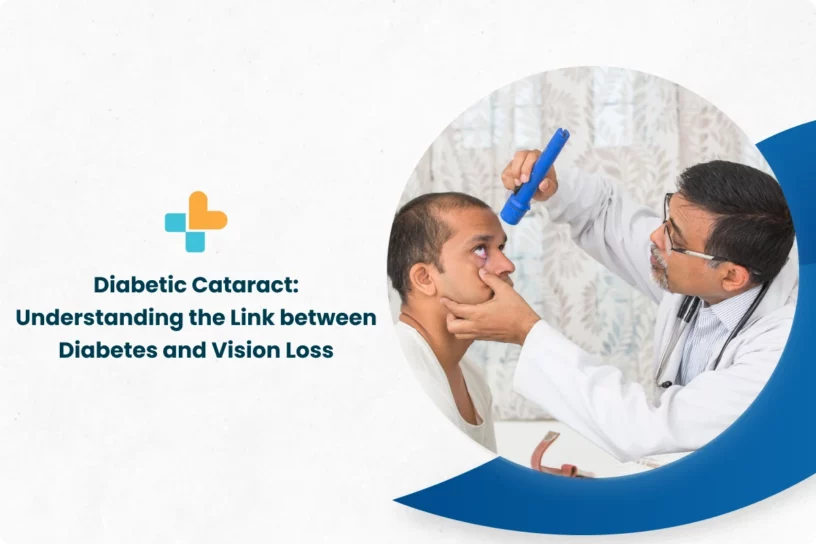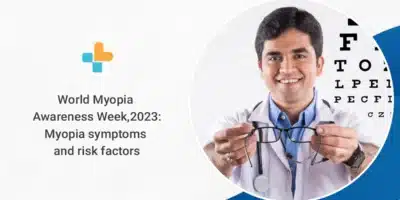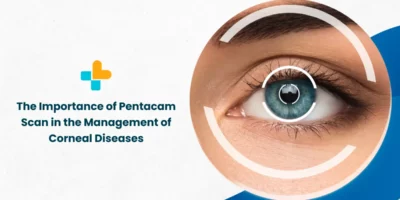Diabetes is a chronic disease that affects millions of people worldwide. One of the lesser-known complications of diabetes is the development of cataracts, a clouding of the lens in the eye that can lead to vision loss. Diabetic cataracts are a significant concern for those living with diabetes, as they can cause various visual symptoms and may require surgery to correct.
In this blog, we will explore the link between diabetes and cataracts, and discuss strategies for managing and preventing this vision complication.
How does diabetes cause cataracts?
Diabetes can cause cataracts by altering the metabolism of glucose in the lens of the eye. The lens is a clear structure that sits behind the pupil and is responsible for focusing light onto the retina, which sends visual signals to the brain. In a healthy lens, a tightly controlled balance of nutrients and fluid is maintained to ensure clarity and transparency.
However, in people with diabetes, the high glucose levels in the blood can enter the lens and interfere with this delicate balance. The excess glucose can cause protein molecules in the lens to clump together and form opaque areas, which can eventually lead to cataract formation. This process can be accelerated by other factors, such as smoking, UV exposure, and other medical conditions like high blood pressure.
It’s important to note that not all people with diabetes will develop cataracts, and the risk of developing cataracts may be influenced by factors such as age, duration of diabetes, and blood sugar control. Regular eye exams and blood sugar monitoring can help identify and manage any potential vision complications related to diabetes.
Symptoms of diabetic cataracts: What to look for
Symptoms of diabetic cataracts are similar to those of age-related cataracts and can vary depending on the severity and location of the cataract. Some common symptoms include:
- Blurred or hazy vision: Vision may appear cloudy or hazy, which can make it difficult to see details.
- Reduced night vision: People with diabetic cataracts may have difficulty seeing in low-light conditions, such as at night or in dimly lit rooms.
- Glare sensitivity: Vision may be more sensitive to bright lights, which can cause discomfort or difficulty seeing.
- Double vision: Cataracts can cause light to scatter inside the eye, which can result in double vision or ghost images.
- Frequent changes in glasses prescription: As the cataract grows, it can cause changes in the eye’s refractive power, leading to frequent changes in glasses prescription.
It’s important to note that some people with early-stage cataracts may not experience any symptoms, and regular eye exams are essential for detecting and monitoring any changes in vision. If you have diabetes, it’s important to schedule regular eye exams with an ophthalmologist or optometrist to help prevent, detect, and manage potential vision complications.
Diabetic cataract treatment options
The treatment options for diabetic cataracts are similar to those for age-related cataracts and depend on the severity of the cataract and the individual’s overall health. Some treatment options include:
- Glasses or contact lenses: In the early stages of cataracts, vision may be improved with prescription glasses or contact lenses.
- Brighter lighting and anti-glare sunglasses: Brighter lighting can help improve vision, and anti-glare sunglasses can reduce glare sensitivity.
- Medications: There are currently no medications that can reverse or prevent cataracts, but some medications may help slow their progression in certain cases.
- Surgery: Cataract surgery involves removing the clouded lens and replacing it with an artificial lens implant. This is the most effective treatment for advanced cataracts and can often be performed on an outpatient basis.
It’s important to note that while cataract surgery is generally safe and effective, there are risks associated with any surgical procedure, and it may not be suitable for everyone. People with diabetes may be at higher risk for complications during and after surgery, and it’s important to discuss any concerns with an eye doctor or surgeon.
Prevention strategies for diabetic cataracts
To reduce the risk of diabetic cataracts, it’s important to control blood sugar levels, maintain a healthy diet, wear sunglasses, quit smoking, and schedule regular eye exams. While these strategies cannot guarantee prevention, they can promote overall eye health and reduce the risk of developing other eye conditions associated with diabetes.
Also Read : The Lesser-known Symptoms of Weak Eyesight?
Conclusion
In conclusion, diabetic cataracts are a common complication of diabetes that can significantly impact vision and quality of life. While treatment options exist, prevention strategies such as controlling blood sugar levels, maintaining a healthy diet, and wearing sunglasses can help reduce the risk of developing diabetic cataracts. It’s important for individuals with diabetes to work closely with their healthcare providers to manage their condition and maintain overall eye health.
Ayu Health Network of Hospitals offers a range of services to help individuals manage their diabetes and reduce the risk of complications such as diabetic cataracts. With a focus on personalized care and evidence-based approaches, Ayu Health is committed to helping individuals achieve optimal health and well-being.
Our Hospital Locations
Ophthalmology Surgery Hospitals in Chandigarh | Ophthalmology Surgery Hospitals in Bangalore | Ophthalmology Surgery Hospitals in Jaipur | Ophthalmology Surgery Hospitals in NCR | Ophthalmology Surgery Hospitals in Hyderabad
Our Doctors
Ophthalmology Surgery Doctors in Chandigarh | Ophthalmology Surgery Doctors in Bangalore | Ophthalmology Surgery Doctors in Jaipur | Ophthalmology Surgery Doctors in NCR | Ophthalmology Surgery Doctors in Hyderabad
About the Author

Dr. S. Goel
Dr. S. Goel is a renowned Internal Medicine Specialist currently practicing at Ayu Health, Bangalore. He is a Specialist in Internal Medicine, Diabetes HTN, Paediatric Care, and Family Medicine.




